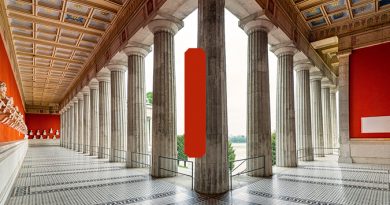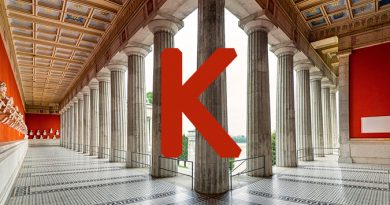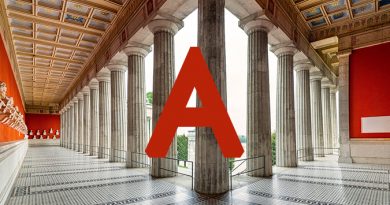G
Chris Gage (born Christian Geisinger) Jazz pianist, composer b. Dec. 12, 1927, Regina, Sask.; d. Dec. 27, 1964, North Vancouver. At 4, stood on tiptoes to play family pump organ; at 6, played Regina radio; at 11, performed all-nighters with adult band; at 14, had his own six-piece band. Came to Vancouver at 17. Played CBC radio, over 100 TV appearances, Vancouver clubs and with Louis Armstrong. Arrested for drunkenness, harassment of ex-wife; died of barbiturate overdose. “Peter Pan, rushing headlong toward disaster.” Chris Gage Memorial Award established by Bob Smith Scholarship Fund (1990).
Walter H. Gage Mathematics professor, UBC president b. March 5, 1905, South Vancouver; d. Oct. 3, 1978, Vancouver. Educated at Tecumseh Elem. and John Oliver HS; UBC (BA, 1921-25; MA, 1926); graduate studies in math (U. of Chicago; California Institute of Technology). A scholar and revered instructor, he taught from 1927-33 at Victoria College, a UBC affiliate, then at UBC until 1978. Won UBC’s 1953 Great Trekker Award and 1968 Master Teacher award. LL.D (UBC, 1958). Sixth president of UBC (1969-75). Order of Canada, 1971. Retired in 1975.
R. Harry Gale Mayor of Vancouver, 1918-21, 1937 1918-21 b. 1878 Quebec; d. July 26, 1950 Gale stepped into the mayor’s chair at the end of WW I when housing shortages, economic and social disruption, Spanish flu, the communist revolution in Russia and the general strike in Winnipeg made for a chaotic, reactionary time. Fearful that communist unions would take over workplaces and society in general, the city set up a conciliation committee for settling disputes between itself and its employees following formation of the Vancouver City Hall Employees Association in 1918. Mayor Gale’s greatest achievement was promoting the recognition of Vancouver as a major western port, now a more credible claim since the opening of the Panama Canal in 1914.
James F. Garden Mayor of Vancouver, 1898-1900 b. Feb 19, 1847, Upper Woodstock, NB; d. Dec. 8, 1914, Vancouver.
Mayor Garden, elected for three one-year terms in a city perched upon a decade of spectacular growth had “the respect and confidence of all classes”. As well as influencing the physical development of the city, Garden was literally a leader, in 1899 heading a march of citizens to Deadman’s Island in to stop Theodore Ludgate from logging it. The so-called Ludgate Affair began when Mayor Garden read the riot act, defying Ludgate to “chop that tree.” He did, and was promptly arrested. Years of litigation followed, and eventually Ludgate’s 25-year lease from the federal government was cancelled, it being determined the property was part of the federal agreement granting Stanley Park to the city in perpetuity. As an engineer, Garden’s influence on development of the city’s infrastructure is obvious. Projects he guided through development include an early street car system, sidewalks, road grades and water connections. Mayor Garden also donated the land known today as Garden Park.
Mae Garnett Senior court reporter b. c. 1875, London, Ont.; d. May 26, 1984, West Vancouver. Moved to Winnipeg in early 1900s as CPR public relations officer, transferring to the Calgary Exhibition and Stampede. One of the first female general news reporters in Western Canada, writing for the Albertan, Edmonton Bulletin and Vancouver News-Herald, joining the Sun in 1930. In 1962, retired as senior court reporter covering B.C. Supreme Court and county courts. One of the first women to get a mortgage from Central Mortgage and Housing. “Known for championing women’s rights at least two generations before the rise of the women’s movement.”
Dan George (birth name: Teswahno) Actor, writer b. July 24, 1899, North Vancouver; d. Sept. 12, 1981, Vancouver. Longshoreman and logger. In 1959, began acting career (TV, stage, Hollywood films). Appeared in first production of The Ecstasy of Rita Joe by George Ryga (1967). Films included Little Big Man (1970) (Oscar nomination) and The Outlaw Josey Wales (1975). Chief of Squamish Band (1951-63), he embodied the dignified elder. Biblio: My Heart Soars (1974), My Spirit Soars (1982).
Bruno Gerussi Actor b. May 7, 1928, Medicine Hat, Alta.; d. Nov. 21, 1995, Vancouver. Raised in New Westminster. Attended Banff School of Fine Arts before joining the Stratford Festival Theatre in 1954. A leading Shakespearean actor in the 1950s. Host of his own CBC radio show for four years, and later hosted CBC’s Celebrity Cooks. Performed for 18 years in The Beachcombers, CBC’s popular TV series, as gruff Nick Adonidas, a log salvager on the B.C. coast. His last public performance was in the play Breaking Legs, at the Vancouver Arts Club (1994).
Gordon (James Gordon) Gibson Sr. Lumberman b. Nov. 28, 1904, Goldbottom Creek, Yukon Territory; d. July 18, 1986, West Vancouver. Left school at 12 to work in fishing and logging. Nicknamed “The Bull” as a young man. In 1939, with father W.F. Gibson and three brothers, started three logging companies. From 1948-52, owned or participated in many related businesses. Lib. MLA (Lillooet, 1952); later elected in North Vancouver. Led a stormy political career, once accusing Premier W.A.C. Bennett of thinking he was God. A Macmillan Bloedel shareholder and director, he opposed expansion in mid-1960s. Biblio: Bull of the Woods.
Rachel Goldbloom Philanthropist b. c. 1865, New York; d. April 1931. Married William Goldbloom in 1882 and moved from New York to Fort Garry. Nell, their daughter, was the first Jewish girl born in Winnipeg. In the mid-1900s, they moved to Vancouver; their home at 540 Burrard became the centre of Jewish community life, with almost every Jewish organization of that time said to have started there. The Hadassah’s second Vancouver chapter was named for her during her lifetime. A “one-woman philanthropic organization.” Biblio: Pioneers, Pedlars, and Prayer Shawls by Cyril E. Leonoff.
William Grafton Bowen Island pioneer b. Feb 6, 1868, London, Eng.; d. Dec. 9, 1957, West Vancouver. Came to Vancouver with two brothers in 1885. One of Bowen Island’s first settlers, preempting 640 acres at $1 an acre. Farming on Bowen was difficult but salmon was abundant. Boiled cod, shark and dogfish livers on the beach in a 60-gallon sugar kettle to extract the valuable oil. Also sold game to the Hotel Vancouver. About 1887, launched first Howe Sound ferry service with a four-ton sloop. From 1917-34, worked as a janitor. Bowen’s Grafton Lake and Grafton Bay are named for him.
Ivy Granstrom Athlete, “Queen of the Polar Bears,” b. September 28, 1911, Glace Bay, Nova Scotia; d. April 14, 2004, Vancouver. Blind, she developed her athletic skills in the 1950s. After a car accident in the 1970s doctors told her she would always need a wheelchair, but she began her own rehab program, walking, then jogging, then running, first competing in Blind Sports Competition, then against sighted athletes. She raced until 2001 with Paul Hoeberigs who ran behind, tethered by a cord, calling out directions. The holder of 12 unchallenged world records, Ivy was a Sports B.C. Athlete of the Year (1982), inducted into the Terry Fox Hall of Fame (2001) and made a Member of the Order of Canada (1989). She participated in the annual English Bay Polar Bear Swim for 76 years. (Richard Martin)
Walter Henry Grassie Jeweller b. Jan. 22, 1861, Seaforth, Ont.; d. April 3, 1941, Vancouver. Educated in Seaforth, he entered the jewelry business there. In 1882 moved to Port Arthur, Ont. Arrived in Port Moody in July 1886, coming to Vancouver by boat. Erected wooden building on Cordova; later moved to lower Cambie Street. Five years later, moved business to final site on Cambie, north of Hastings. His store was “particularly favored by railway men.”
Dal (Albert Edward) Grauer President, B.C. Electric Railway b. Jan. 21, 1906, Sea Island, B.C.; d. July 28, 1961, Vancouver. Sixth son of pioneer John (Jacob) Grauer (b. 1861; d. 1936). Attended King Edward HS; UBC (BA, Economics, 1925); PhD (Berkeley); Rhodes Scholar (1927); BA (Oxford). As a young professor and head of social sciences at U. of T, he assisted Bank of Canada and Rowell-Sirois Commission. Appointed secretary, BCER (1939). Later, as president, took the company (now B.C. Hydro) through major expansion. Chairman, Vancouver General Hospital; president, Vancouver Symphony Society; member of Gordon Commission. UBC chancellor (1957); LL.D (UBC, 1958). His daughter is artist Sherry Grauer.
Walter Edward Graveley Pioneer realtor b. Aug. 7, 1854, Cobourg, Ont.; d. June 30, 1939, Vancouver. Came west from Cobourg in 1883, moving to Gastown (1885). His real estate business profited from the 1912 boom. Purchased a lot at Oyster Bay (Carrall and Cordova) for business premises when CPR was extended from Port Moody to Vancouver. A founder of the Royal Vancouver Yacht Club in 1903, he owned many yachts and won “scores of trophies.” His ashes were scattered over English Bay.
Sam Greer Farmer b. 1843, Northern Ire.; d. April 6, 1925, Vancouver. In 1882, “Gritty” preempted 160 acres at Kitsilano Beach (popularly known as Greer Beach), part of 6,000 acres given by B.C. to the CPR in 1884. In 1887, New Westminster sheriff Thomas Armstrong tried to remove Gritty, his wife and six children. Gritty shot several times, hitting the sheriff and his deputy. After a second posse arrived, he gave himself up and his farm was razed. In 1891, convicted by Judge Begbie of wounding a sheriff, he served a term in the New Westminster jail where he often ate lunch on the beach. His daughter Jessie Hall was a leading Vancouver socialite.
Peter Greyell White Rock builder b. Ont.; d. June 1, 1919, White Rock. A local resident, he built a 50-room, four-storey hotel in White Rock in the east end of the settlement. It opened July 1, 1912, with a lunch for 300 guests. He also built the first bakery and tea room. The hotel was sold in 1913 and renamed The Tourist Hotel. Later, as the White Rock Hotel, it hosted concerts and local talent to mid-October 1977 when it was torn down for development. Greyell died from a fall while building a pier restaurant.
John Grove Lighthouse keeper b. 1864, London, Eng.; d. March 21, 1935, Vancouver. Served as lighthouse keeper at Prospect Point, later at Brockton Point (1895-1930). From 1888, lived in a cottage on the rocks until the station was electrified in January 1926. One of the lowest paid workers in Vancouver, he received $25 per month but his station was coveted for its free housing and use of two acres in Stanley Park. To make extra money, Grove ran a lemonade stand for tourists until the park board complained and it was closed down.
Frank Armathwaite Griffiths Radio and TV station owner, sportsman b. Dec. 17, 1916, Burnaby; d. April 7, 1994, Vancouver. A professional accountant, he bought CKNW in 1956 and made it the cornerstone of a broadcasting empire. Formed Western Broadcasting (later Western International Communications), which included radio and TV cable services. From 1974, owner of the Vancouver Canucks. Member of Hockey Hall of Fame; Canadian Business Hall of Fame.
Helena Rose Gutteridge Suffragette b. c. 1880, London, Eng.; d. Oct. 3, 1960, Vancouver. “Feminist, trade unionist, tailor, socialist, politician.” Immigrated to B.C. in 1911. Organized B.C. Women’s Suffrage League. Her interest in the working class woman led to trade union activities. Soon took a leading role on Vancouver Trades and Labor Council. Joined the Co-operative Commonwealth Federation (CCF). In 1937, she was elected Vancouver’s first woman alderman.




